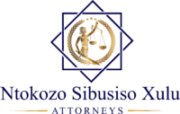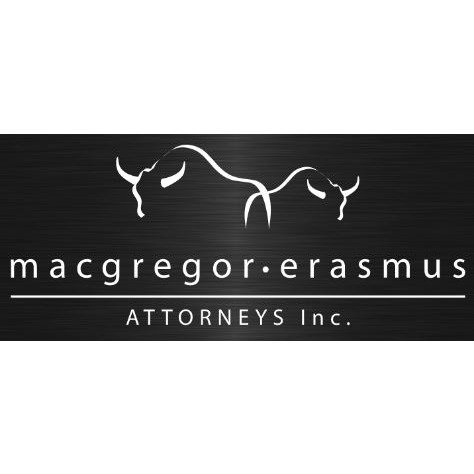Best Funds & Asset Management Lawyers in Durban
Share your needs with us, get contacted by law firms.
Free. Takes 2 min.
List of the best lawyers in Durban, South Africa
About Funds & Asset Management Law in Durban, South Africa
Funds and asset management law in Durban refers to the legal framework that governs the management, investment, and oversight of collective investment schemes, private funds, and various asset classes on behalf of clients and investors. Durban, as a key South African business hub, hosts a number of financial institutions, fund managers, and advisory firms that serve a diverse local and international clientele. South African law, primarily set at the national level and enforced locally, emphasizes investor protection, transparency, and ethical conduct. Compliance with the legislative and regulatory framework is essential for all parties engaging in fund management activities.
Why You May Need a Lawyer
There are various circumstances in which individuals or businesses in Durban may require legal assistance in the field of funds and asset management. These include forming or operating a collective investment scheme, structuring private funds or unit trusts, seeking advice on the regulatory compliance required by the Financial Sector Conduct Authority (FSCA), resolving investor disputes, or reviewing investment management agreements. Legal expertise is also essential when navigating issues involving the Financial Intelligence Centre Act (FICA), anti-money laundering regulations, tax implications of investments, or cross-border investments. Lawyers can help interpret legislation, draft necessary contracts, mediate disputes, and ensure that all activities meet the stringent rules and regulations imposed by local and national authorities.
Local Laws Overview
Several key pieces of legislation and regulations shape the funds and asset management landscape in Durban and throughout South Africa. The Collective Investment Schemes Control Act governs the formation, operation, and administration of collective investment schemes. The Financial Advisory and Intermediary Services Act regulates the conduct of those who give advice or intermediary services regarding financial products. The Financial Sector Conduct Authority (FSCA) is the principal regulatory body responsible for market conduct and oversees both fund managers and advisers. The Financial Intelligence Centre Act imposes obligations designed to combat money laundering, requiring robust reporting and recordkeeping. Additionally, the South African Reserve Bank enforces exchange control requirements that are crucial for cross-border transactions. Compliance with South African tax legislation, including the Income Tax Act and requirements related to value-added tax for certain service providers, is also vital for proper fund and asset management.
Frequently Asked Questions
What is the difference between a unit trust and a collective investment scheme?
A unit trust is a type of collective investment scheme where investors pool their money into a single fund managed by professionals. In both cases, investors share proportionally in the gains and losses of the fund’s holdings.
What licenses must a fund manager obtain in Durban?
Fund managers must be licensed by the Financial Sector Conduct Authority (FSCA) under the relevant acts. They may also require approval for specific products or services depending on their business model.
How are funds regulated to protect investors?
Funds are subject to strict regulatory oversight, including requirements for disclosures, independent audits, segregated accounts, and regular reporting to both regulators and investors.
Can foreign investors participate in South African funds managed in Durban?
Yes, but they must comply with exchange control regulations set by the South African Reserve Bank and may face limitations or reporting requirements regarding their investment.
What should I check before investing in a fund?
Review the fund’s license status, read the fund fact sheet and prospectus, understand the fee structure, and ensure the manager’s track record and the regulatory compliance of the operation.
What are the most common disputes in asset management?
Disputes often arise from interpretation of investment mandates, alleged mismanagement, underperformance, misrepresentation, or fees charged.
Who can provide financial advice in Durban?
Only individuals and firms who are registered as Financial Services Providers (FSPs) with the FSCA are legally entitled to provide financial advice in South Africa.
Are there tax implications for returns earned from funds?
Yes, returns earned from funds are subject to South African tax laws. Income may be taxed as dividends, interest, or capital gains, depending on the nature of the underlying investment.
Can funds invest offshore, and what are the requirements?
South African funds can invest offshore but must comply with exchange control regulations, which limit the percentage of assets that may be invested abroad and require specific reporting.
How do I report misuse or fraud in funds or asset management services?
Suspected misconduct should be reported to the FSCA or, if it involves money laundering or similar crimes, to the Financial Intelligence Centre. Legal counsel can assist in drafting complaints and reports.
Additional Resources
Some reputable sources for further information or assistance in funds and asset management include:
- Financial Sector Conduct Authority (FSCA) - For guidance, regulatory lists, and complaint resolution.
- South African Reserve Bank - For exchange control and cross-border investment regulations.
- Financial Intelligence Centre (FIC) - For information on anti-money laundering rules.
- South African Institute of Financial Markets - For educational resources and professional standards in asset management.
- The Law Society of South Africa - For referrals to qualified attorneys specializing in financial services law.
Next Steps
If you require legal help in funds and asset management in Durban, start by clearly outlining your situation and goals. Gather any investment documents, contracts, and correspondence relevant to your case. Identify whether your concern is about compliance, disputes, structuring, or another area. Next, consult a lawyer or firm who specializes in funds and asset management or financial services law. Ask about their experience with local regulations and your particular matter. Bring all your questions and documents to your first meeting to make the most of the advice you receive. Remember that regulatory bodies such as the FSCA can also provide guidance or help resolve certain complaints if required.
Lawzana helps you find the best lawyers and law firms in Durban through a curated and pre-screened list of qualified legal professionals. Our platform offers rankings and detailed profiles of attorneys and law firms, allowing you to compare based on practice areas, including Funds & Asset Management, experience, and client feedback.
Each profile includes a description of the firm's areas of practice, client reviews, team members and partners, year of establishment, spoken languages, office locations, contact information, social media presence, and any published articles or resources. Most firms on our platform speak English and are experienced in both local and international legal matters.
Get a quote from top-rated law firms in Durban, South Africa — quickly, securely, and without unnecessary hassle.
Disclaimer:
The information provided on this page is for general informational purposes only and does not constitute legal advice. While we strive to ensure the accuracy and relevance of the content, legal information may change over time, and interpretations of the law can vary. You should always consult with a qualified legal professional for advice specific to your situation.
We disclaim all liability for actions taken or not taken based on the content of this page. If you believe any information is incorrect or outdated, please contact us, and we will review and update it where appropriate.

















